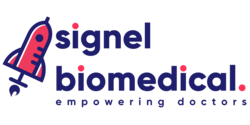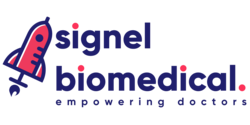
In the realm of healthcare, accuracy and precision are paramount when it comes to medical devices. Whether it's diagnostic equipment, monitoring devices, or treatment tools, the ability to provide accurate and precise measurements and data is crucial for effective patient care. In this blog article, we will explore the significance of accuracy and precision in medical devices, their impact on diagnostics and treatment, and the steps taken to ensure their reliability and safety.
Accurate and Precise Diagnostics:
Functional Efficiency
Accurate and precise diagnostic devices play a vital role in identifying diseases, disorders, and abnormalities in patients. For instance, imaging technologies such as MRI, CT scans, and X-rays require high levels of accuracy and precision to generate clear and reliable images. These images help healthcare professionals make accurate diagnoses and develop appropriate treatment plans.
Similarly, laboratory testing devices, such as blood analyzers, need to provide precise measurements of biomarkers to aid in the diagnosis and monitoring of diseases. Inaccurate or imprecise diagnostic results can lead to misdiagnosis, delayed treatment, or even unnecessary interventions, all of which can have severe consequences for patients.
Monitoring Patient Health
In healthcare settings, accurate and precise monitoring devices are essential for continuous patient care. Devices such as blood pressure monitors, heart rate monitors, and glucose meters must provide accurate measurements to help healthcare professionals track a patient's condition and make informed decisions about treatment.
For example, inaccurate blood pressure readings could lead to the under- or over-treatment of hypertension, potentially putting the patient at risk. Reliable monitoring devices ensure that healthcare providers have access to real-time, accurate data to detect any changes in a patient's health status promptly.
Precision in Treatment Delivery
Precision is critical in the administration of treatments, particularly in areas such as surgery and drug delivery. Surgical instruments, including robotic surgical systems, rely on high precision to ensure accurate incisions, tissue removal, and suturing.
Any errors in precision can result in complications, prolonged recovery times, or even irreversible damage. Similarly, precision in drug delivery systems, such as infusion pumps or dosage dispensers, ensures that patients receive the correct medication in the right dosage, minimizing the risk of medication errors and adverse effects.
Ensuring Reliability and Safety
To ensure accuracy and precision in medical devices, manufacturers adhere to rigorous standards and regulations. Regulatory bodies, such as the U.S. Food and Drug Administration (FDA), require extensive testing and validation processes before a medical device can be approved for use. These processes evaluate factors such as accuracy, precision, reliability, and safety.
Additionally, ongoing quality control measures, including calibration, regular maintenance, and software updates, help maintain the accuracy and precision of medical devices over time. Healthcare providers also play a crucial role by following proper device usage protocols and reporting any issues or malfunctions promptly.
Advancements and Challenges
As technology advances, the healthcare industry continues to benefit from improved accuracy and precision in medical devices. For instance, artificial intelligence (AI) and machine learning algorithms are being integrated into diagnostic devices, enabling more accurate interpretations of medical images and data. However, challenges still exist, such as the potential for bias in AI algorithms or the need for standardized protocols for device interoperability.
Addressing these challenges requires collaboration among healthcare professionals, device manufacturers, regulatory agencies, and other stakeholders to continually improve and innovate medical device technology.
Accuracy and precision are of paramount importance in medical devices as they directly impact patient care, diagnosis, treatment, and overall safety. Reliable and precise devices ensure accurate diagnostics, enable effective monitoring of patient health, and facilitate precise treatment delivery.
Through stringent regulatory processes, ongoing quality control, and advancements in technology, the healthcare industry continues to prioritize accuracy and precision in medical devices. By doing so, healthcare professionals can provide optimal care to patients and improve health outcomes while minimizing the risk of errors or adverse events.













